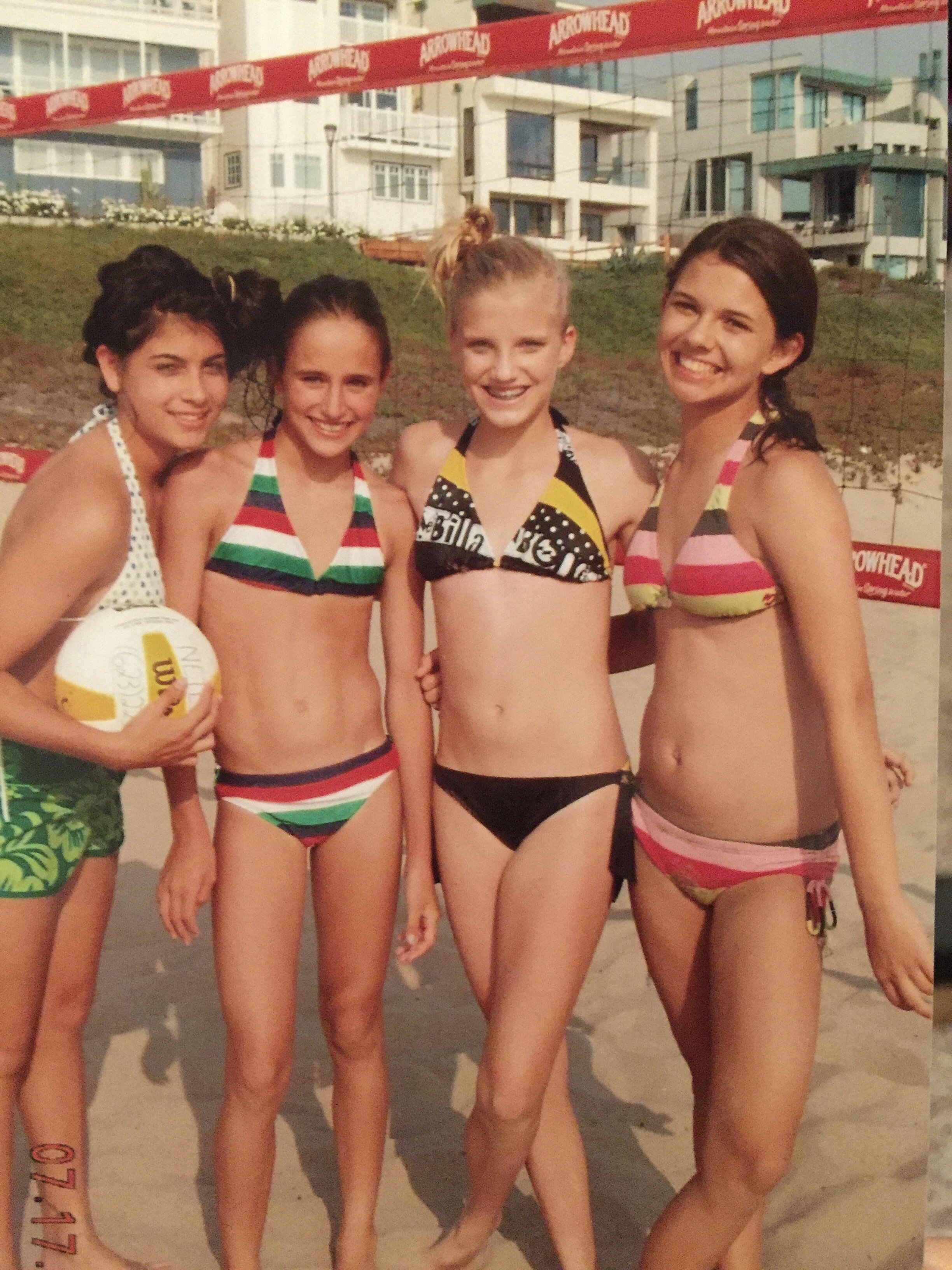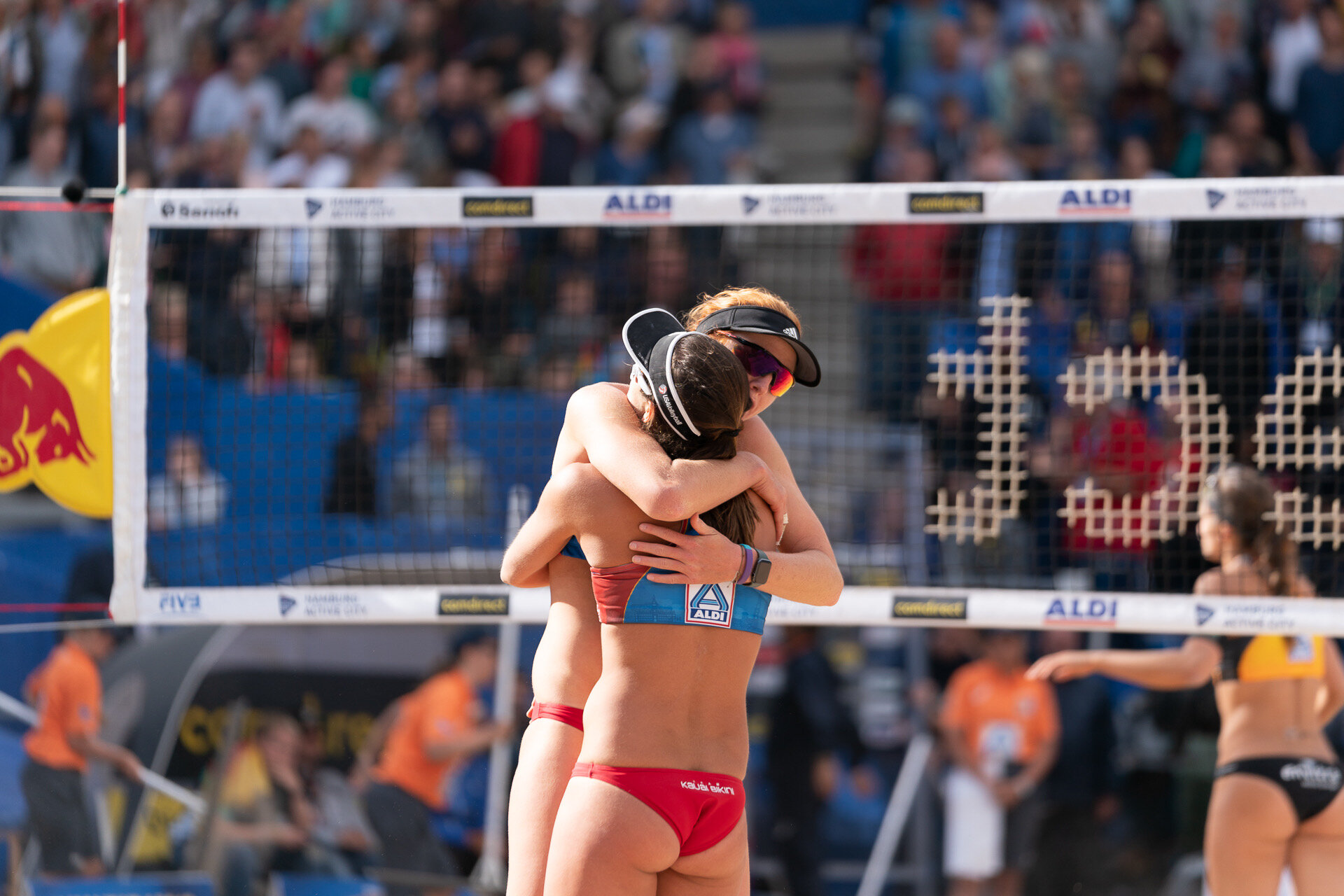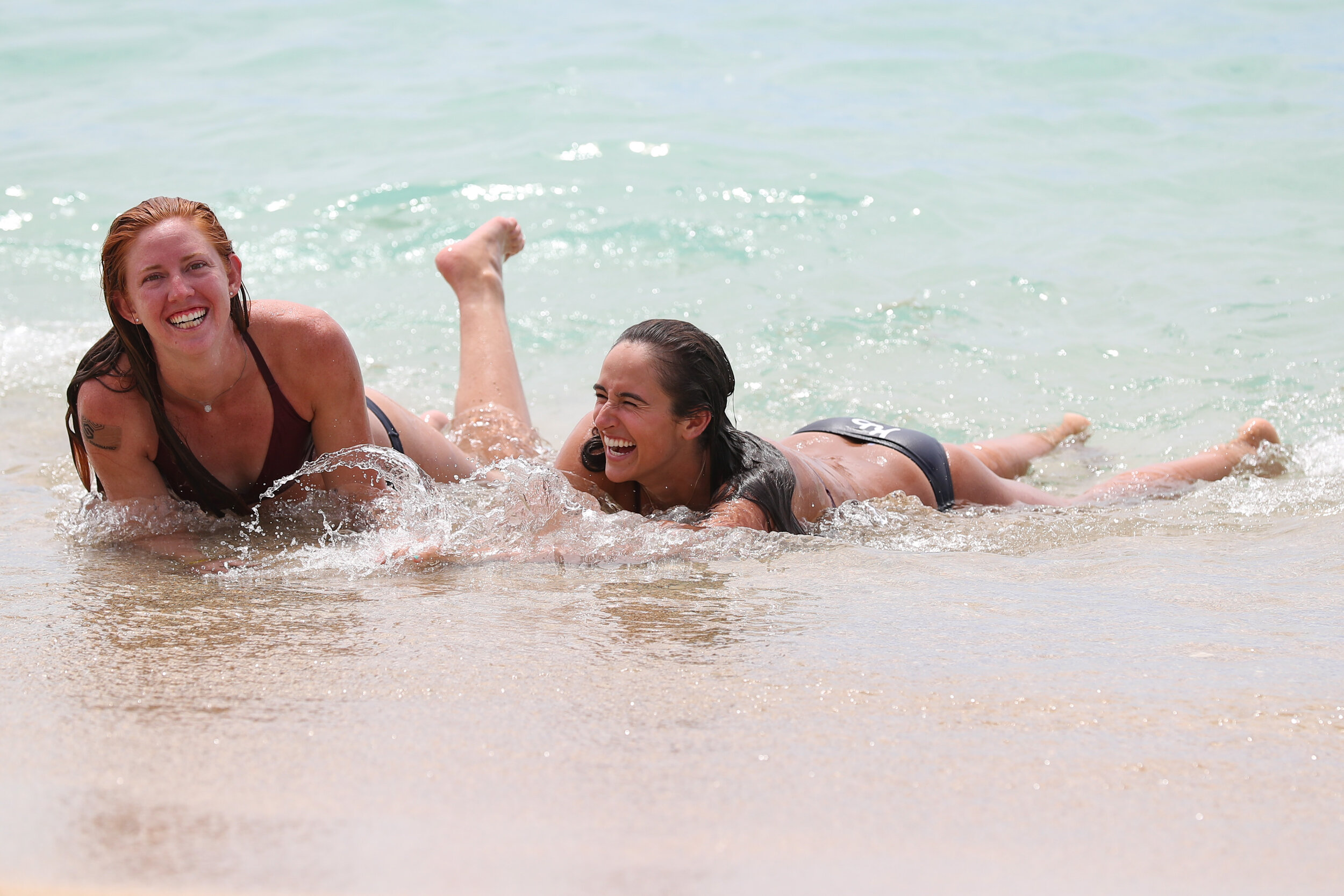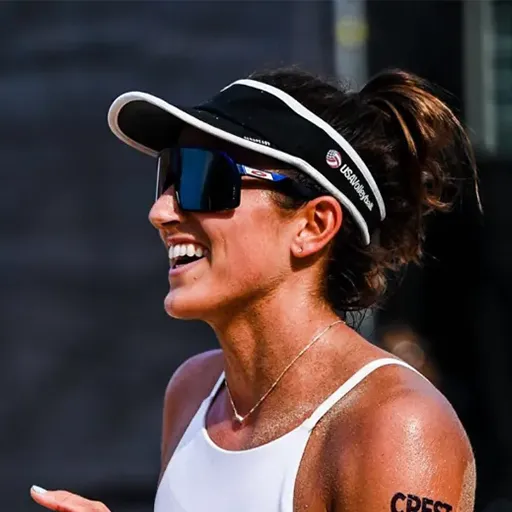My Guide To Beach Volleyball Partners
To put it simply, beach partnerships are like marriages. Well, I mean, I’m not married, but it’s what I would think marriage would look like. You see this human every day. They love you on your worst and best days. They get on your nerves sometimes. And hopefully they make you laugh, like “pee your pants” LAUGH. You see your partner close to every day of the week, and on the weekends, you’re usually playing. Well… maybe not so much in 2020. You’re constantly traveling together, practicing together, lifting together, watching loads of film, and hopefully laughing together, as well. With all this said, it still doesn’t even scratch the surface.
The importance of partnerships in beach volleyball is not talked about enough. I haven’t been a professional for that long, but I do know that when nothing is going right on the court, and you and your partner are what I call “in the weeds,” s**t can hit the fan real quick. And when it hits, the question becomes, “Do you try to turn the fan off, or let it fly?”

Everyone’s had moments of frustration with their partners, whether that’s at the professional level, college level, or in the midst of a CBVA playoff game to 28….loved those games to 28. Most of us express it with bad body language (such as turning away from our partners, shaking our heads, looking at our parents to somehow save us from the “flying s**t.” Everyone’s behavior is different, but whatever it may be, these behaviors make things awkward for you, your partner, and everyone watching you.
The awkwardness that builds on the court while struggling in a game reminds me almost like an awkward, “Who farted?” situation. You’re losing, it’s awkward, it smells bad, no one’s saying anything, and no one knows what to do. And unfortunately, now you are both stuck in the fart fog hoping it’ll go away. But it doesn’t.
I can speak from experience. When I was growing up and starting to play beach volleyball, there were many times I look back and cringe at how I treated my partner. I was a sore loser; I despised losing. Normally I wasn’t upset with my partner, but my frustration with myself would manifest outwardly and affect them. I would storm off, not talk to my partner, sometimes try to avoid even saying bye to them after the tournament. But, thankfully, my dad would force me to apologize for my horrid behavior and say bye before leaving.
Though it’s not always a good feeling looking back and remembering those times, it makes me realize how important it is to treat your partner well even when you’re “in the weeds.” Of course, no one likes to lose. Everyone is competitive, and hopefully, everyone wants to win (if you don’t want to win… I have no comment for that). But the way we treat our partners should never be based on whether we are winning or losing.
All relationships need to be built on a foundation of trust. Trust that you’ll be there for each other when things are both going well and also when April Ross is digging every hard-driven ball you hit and shoving it right back down your throat. Showing up for each other is key.
Looking back, when I turned away from my partner when we were losing, the series of awkward steps went something like this:
- We lost
- We avoided talking to each other till probably the next match
- Then we had to cringingly and awkwardly come back together and make amends.
It was an awkward waste of time. But things don’t have to be awkward if you keep showing up for your partner in times of success or hardship. It’s a choice. It’s a matter of making that choice when all you want to do is let frustration or anger control your dynamic.
Let’s look at it this way. When things are getting awko-taco with your partner, and you feel yourself starting to turn away from them, ask yourself, “Would you rather be escaping a burning building with someone you trust, trying to put the flames out and find the exit together? Or try to fight off the flames all by yourself?” Personally, I need all the help I can get. I think it’s easier to turn towards my partner, band together, and fight the fires as a unit.

CONFLICT….
I’ve learned that once you have that foundation of trust with your partner, conflict will be right around the corner. Most people think conflict is bad. But once you know your partner will show up for you when conflict naturally arises, it will be easier not to take things personally or play defense. At the end of the day, you want the same things – what’s best for your team.
But still, no one likes conflict. Most people love nothing more than to take the Swiffer (cause who has brooms anymore?) and sweep that mess under the rug for no one to see. But the more we confront conflict, the less it builds, and the less clean up we have to do later.
If you try to tell me you don’t have conflicts with your partner, then you’re either lying or you’re lying. There are so many different forms of conflict, big and small.
“For example, there have been times where I get stuck up at the net trying to block, and now Kelly is pissed trying to play defense behind me. Times where we have a block call in place, and I’m not defending the side of the court I agreed on before the ball was served. Times where Kelly wants to wear a certain bathing suit color, but I didn’t do laundry, and now we have to wear the color she doesn’t like. Times where I use all the towels in the bathroom, and now Kelly has to dry off with a washcloth because, conveniently, the hotel phones aren’t working to ask for more. Everyone’s got a little bit of conflict.“
Like a marriage, your partner will do things that get on your nerves and vice versa. But when there is trust and Kelly says, “Dude, you seriously need to stop drying off with all six towels” or “get your a** back on defense and stop trying to block,” I won’t get offended. Instead, I’ll appreciate her for letting me know. And then I’ll try my best to fix it…even though I really do love getting a good solid block.
Creating a space where you can confront each other about hard topics is key. Everyone hates confrontation, but I will say it’s a little easier to hear the hard stuff when you know it’s coming from a person you trust and care about. Like I said earlier, partnerships in beach volleyball are not talked about enough. They intrigue me a lot. I could go on and on about them, but I’m still learning, growing, and making mistakes myself along the way. However, one thing is for sure: you must keep “showing up” in good and bad times for one another.
When choosing a partnership, my advice is to ask yourself these three questions:
- When s**t hits the fan, will you both help find the switch to turn the fan off, or keep it flyin’?
- “Who are you willing to hack the weeds with when the pressure is on?”
- “Who would you choose to escape that burning building with?”
My choice is Kelly Claes, every time. Who’s yours?


Sarah Sponcil is a prominent figure in the world of professional volleyball, known for her exceptional skills, work ethic and achievements on the court. Born on August 16, 1996, in Phoenix, Arizona, Sponcil began her volleyball journey at the age of three and has been showcasing her immense talent and dedication to the sport ever since.
Garnering three high school state championships in Arizona, and two NCAA national championships at UCLA, Sponcil’s career reached new heights when she represented the United States at the 2020 Olympic Games. At 24 years of age, Sponcil became the second youngest beach volleyball player to ever represent Team USA in the Olympic Games and, together with her partner Kelly Claes, were the youngest beach volleyball team to ever represent Team USA in the Olympic Games.
Following her Olympic success, Sponcil has continued to excel as a professional volleyball athlete, earning numerous accolades and recognition for her prowess as both an indoor and beach volleyball player. Her versatility, athleticism, and relentless determination has solidified her reputation as one of the top players in the sport and make her a force to be reckoned with on any volleyball court.
Off the court, Sponcil is known for her humility, work ethic, and commitment to her faith, family, and desire to inspire the next generation of athletes. She serves as a role model for aspiring volleyball players worldwide, demonstrating that with passion, perseverance and dedication, anything is possible in the world of sports.
Search Posts
Categories
Latest Releases
-
“Consider It Pure Joy” A True Underdog Story
May 11, 2024 Blog, On The Court -
The Great Playground Heist: How We Stole Childhood Play
April 12, 2024 Blog, Off The Court
Search Posts
Categories
Latest Releases
-
“Consider It Pure Joy” A True Underdog Story
May 11, 2024 Blog, On The Court -
The Great Playground Heist: How We Stole Childhood Play
April 12, 2024 Blog, Off The Court



